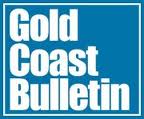 "There is no greater sorrow on earth than the loss of one's native land." - Euripides 431 B.C. |

NT `martial law' A way to save the children |
|
Gold Coast Bulletin - Saturday, June 23, 2007 IT took the ideas of three people - Aboriginal activist Noel Pearson , Indigenous Affairs Minister Mal Brough and Northern Territory crown prosecutor Dr Nanette Rogers - to light the fuse to explode the old myths about Aboriginal welfare. What each of them has had to say about the awful state of Aboriginal life in remote communities has encouraged Prime Minister John Howard to take dramatic action - the virtual declaration of martial law over 44 per cent of the NT. This will mean a six-month ban on alcohol and pornography, health checks for all Aboriginal children and linking the availability of welfare payments with leading a responsible life. The Howard plan is fraught with danger because it challenges just about every tradition applied to Aboriginal rights and welfare for nearly 50 years. This is tough love on a grand scale and it is bound to have civil rights lawyers reaching for the statute books. But it would be irresponsible and heartless to allow the social collapse of indigenous communities to continue. The lives of tens of thousands of children should no longer be surrendered to physical, sexual and emotional abuse. It has to be acknowledged successive governments - by freely giving welfare, endlessly talking about rights, allowing closed communities to exist and granting self-management without responsibility - have caused great harm even though their intention was to avoid harm. Very little of what has been done so far has helped to build a better life for Aborigines in the far north. Land rights are of little consequence if the children who are supposed to inherit the land never reach adulthood. Dr Rogers blew the whistle on sexual abuse (particularly of children), alcoholism and violence in Aboriginal communities last year. It happened to be around the same time Mr Brough was warning of pedophile rings operating in indigenous settlements and working on plans to get people out of the dust and into decent housing. Mr Pearson, meanwhile, has been creating a template for a new indigenous society in his Cape York community by linking the availability of welfare money to the better treatment of Aboriginal children and a sharp reduction in grog consumption. So dismal is the situation in some communities that - as Mr Pearson revealed recently - more than 80 children a month are being taken from their families by child protection services to save them from recurring sexual abuse, assault, alcohol and substance abuse and poor health conditions. The aim primarily is to save children from a living hell and to prevent them - if they are lucky enough to become parents themselves - from also becoming abusers. There will, of course, be a political backlash from some indigenous leaders who will claim a violation of rights, and from those who cling to the ideals of the `noble savage' being able to rely on traditional ways to survive. Watch the courts for a counter-attack on the government action. An alcohol prohibition, necessary as it may be, also brings its own problems. It requires thousands of people to go `cold turkey' after years of alcoholism. As well, it will take years for the Pearson back-to-work plan to take hold. The work ethic, for so long denied life by `sit-down money' and alcohol, will take at least a generation to develop. But at some point in the sad decline of Aboriginal society in the Top End, someone had to stop the rot.
|